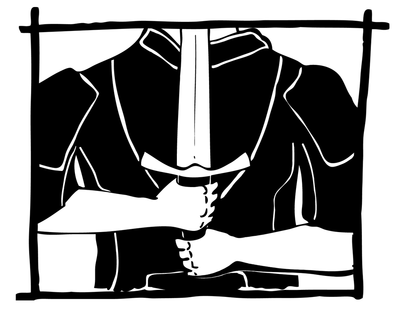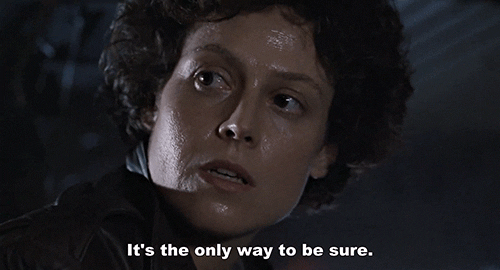My debut fantasy novel (more will come, I swear) unfolds through six different points of view. Six radically different, first-person voices weave a tale of toxic relationships, hostility, and violence.
I love all my characters—even the rotten ones. (That’s a blog post for another time.)
But each character has been called boring, a waste of text, infuriating. Each character has been labeled the weak point of the novel. And each character has been lauded as a reader’s absolute, bar-none favorite. (Yes, even the rotten ones.)
In the editing stage, this proved a source of frustration among my beta readers and myself. Weighing the wildly varied responses and searching for truth in the stack of reactions nearly drove me to delete the entire project.
I love all my characters—even the rotten ones. (That’s a blog post for another time.)
But each character has been called boring, a waste of text, infuriating. Each character has been labeled the weak point of the novel. And each character has been lauded as a reader’s absolute, bar-none favorite. (Yes, even the rotten ones.)
In the editing stage, this proved a source of frustration among my beta readers and myself. Weighing the wildly varied responses and searching for truth in the stack of reactions nearly drove me to delete the entire project.
How can one reader insist Character A is the most compelling and enjoyable of the bunch, while another reader insists Character A doesn’t need to exist at all? How can one reader denounce Character B as pathetically one-dimensional, while another reader practically writes essays about the same character?
In order to feel brave enough to publish, I convinced myself—true or not—that the bipolar feedback was evidence of good writing.
I thought of other books with other casts of characters, thought of conversations I’d had with friends about those characters, thought of how differently we all felt about the same fictional people.
I told myself, It makes sense that Reader A hates Character A. It makes sense that Reader D loves Character B.
This may have been a colossal mistake. I may have ignored valuable feedback that could have improved my book. But the readers who’ve contacted me post-publication seem to fall along that same, wide spectrum of opinions when it comes to the characters—and I love that.
I love that I may have successfully portrayed characters in a realistic enough way that they aren’t 100% likeable or 100% detestable.
At this point, and in this paragraph, I will discuss Lawrence Anderton briefly, though I intend to dedicate an entire post to him in the future. Yes, he has fans. No, his actions do not have fans (hopefully). Yes, he delights me as a character, potentially more than the others, but I have writer-reasons for it (to be elaborated upon at a later date). I’d likely nuke him from orbit, were we to meet in real life.
In order to feel brave enough to publish, I convinced myself—true or not—that the bipolar feedback was evidence of good writing.
I thought of other books with other casts of characters, thought of conversations I’d had with friends about those characters, thought of how differently we all felt about the same fictional people.
I told myself, It makes sense that Reader A hates Character A. It makes sense that Reader D loves Character B.
This may have been a colossal mistake. I may have ignored valuable feedback that could have improved my book. But the readers who’ve contacted me post-publication seem to fall along that same, wide spectrum of opinions when it comes to the characters—and I love that.
I love that I may have successfully portrayed characters in a realistic enough way that they aren’t 100% likeable or 100% detestable.
At this point, and in this paragraph, I will discuss Lawrence Anderton briefly, though I intend to dedicate an entire post to him in the future. Yes, he has fans. No, his actions do not have fans (hopefully). Yes, he delights me as a character, potentially more than the others, but I have writer-reasons for it (to be elaborated upon at a later date). I’d likely nuke him from orbit, were we to meet in real life.
As I was saying, I love playing with a range of characters, and I love making sure that each character will speak to one reader and madden another.
It’s likely every novel I write will feature multiple narrators, multiple POVs, multiple voices. I love to read books told from more than one point of view, because those books always underscore what we can never truly understand as we go about our solitary lives: everyone thinks differently. Everyone perceives the same situations from completely different perspectives and viewpoints. And it’s rare for anyone to be completely in the right or completely in the wrong.
It’s hard to look at another human and realize that your ideas and beliefs are likely just as flawed as theirs, that they probably have as much or as little reason for their actions as you do. But through fiction, we can experience a different life through multiple sets of eyes, and I sincerely believe the exercise generates stronger empathy among real, live people.
What do you think? Were my characters complex? Do you typically prefer novels with multiple narrators? Are you excited for me to discuss Lawrence Anderton in the future? Use that comment section, friends!
It’s likely every novel I write will feature multiple narrators, multiple POVs, multiple voices. I love to read books told from more than one point of view, because those books always underscore what we can never truly understand as we go about our solitary lives: everyone thinks differently. Everyone perceives the same situations from completely different perspectives and viewpoints. And it’s rare for anyone to be completely in the right or completely in the wrong.
It’s hard to look at another human and realize that your ideas and beliefs are likely just as flawed as theirs, that they probably have as much or as little reason for their actions as you do. But through fiction, we can experience a different life through multiple sets of eyes, and I sincerely believe the exercise generates stronger empathy among real, live people.
What do you think? Were my characters complex? Do you typically prefer novels with multiple narrators? Are you excited for me to discuss Lawrence Anderton in the future? Use that comment section, friends!








 RSS Feed
RSS Feed


